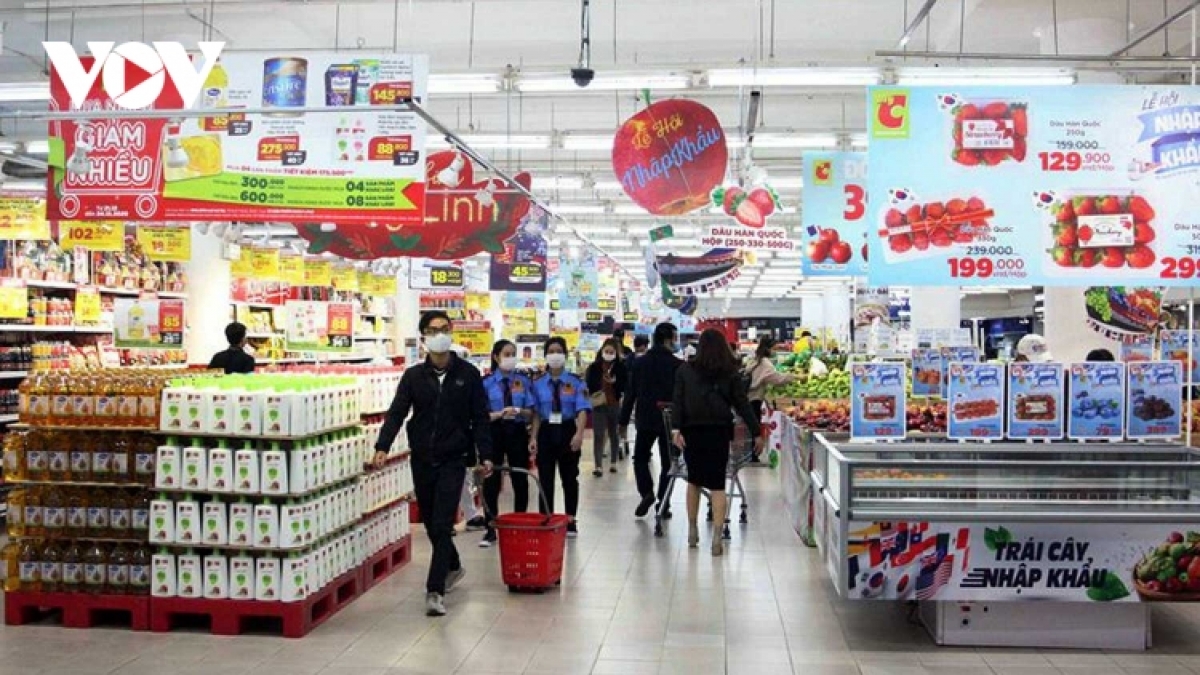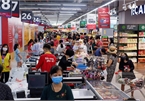

Macroeconomic stability and inflation being controlled at 3.23% is seen an important premise for the nation as it continues to meet the GDP growth target of approximately 6.5% and control inflation at under 4% as set out by the Government for the year ahead.
Last year saw the Government and Prime Minister Nguyen Xuan Phuc direct ministries, sectors, and localities to remain prudent in their management in order to ensure the harmonisation of common goals, while also ensuring the stability of market price levels, curbing inflation, and removing difficulties faced by firms.
Due to these efforts, the average consumer price index (CPI) in 2020 witnessed a surge of 3.23% compared to the average seen in 2019, lower than the target of below 4% set by the National Assembly (NA). Indeed, core inflation in 2020 saw an increase of 2.31% compared to 2019’s figures.
According to Nguyen Anh Tuan, director of the Price Management Department under the Ministry of Finance, there are a number of factors that adversely affect the price situation, with complicated developments occurring in fuel products, coupled with abrupt increases and declines being difficult to forecast. In addition, is also challenging to stabilise prices for essential commodities, including pork, in the scenario that disease is uncontrollable. Consequently, insufficient supply will serve to impact the local market.
Tuan emphasises the necessity of considering factors relating to natural disasters as a means of taking preventive steps, being more proactive to solve difficulties faced by businesses, boosting production as a means of ensuring continued supply and demand, and controling inflation. Therefore, ministries and sectors must continue closely following the market price situation to achieve more effective management, he adds.
Dr. Ngo Tri Long, an economic expert, believes that the year ahead will be very difficult to predict. As a result, price management should continue to be carried out in a prudent, flexible, and proactive manner, whilst the fiscal policy should be combined with monetary policy and other macroeconomic policies as a means of keeping inflation in check and in line with set targets.
A boost in commodity prices is anticipated to be very high and erratic due to consumer demand, causing the Government and relevant ministries to devise specific solutions regarding price management.
Providing that the solutions are properly implemented during the first quarter of the year, it will serve as a premise for the following quarters to meet the target on inflation control as set by the NA, Dr. Long emphasises.
Le Quoc Phuong, former Deputy Director of the Industry and Trade Information Centre under the Ministry of Industry and Trade, says that a number of products will be adjusted throughout 2021 according to the roadmap, with price increases being greatly dependent on the socio-economic situation.
This year, it will be vital to take the initiative in implementing the Government’s solutions in line with the actual situation to control the price of commodities, especially essential goods, Phuong states.
"Inflation in 2021 right at the beginning of the year is forecast to be low and increase gradually in the following months to the end of the year. It is imperative to keep the CPI steady at a low level. If it is done well, inflation will be kept at only over 3% by the end of this year," Phuong analyses.
Economic experts also forecast that there are two possible scenarios that will affect CPI during this year. In the first scenario, once the COVID-19 pandemic is brought under control, the global economy will gradually recover, with prices set to strongly increase due to the dual impact of economic recovery and the benefits of huge stimulus packages implemented by countries. Then, the nation’s price level will be under increasing pressure. In the event that drastic price management measures are not realised, the average CPI could increase by 4% to 4.5%.
In line with the second scenario and the COVID-19 pandemic is not brought under control, difficulties will occur in recovering the global economy. As a result, the world price will not sharply increase, therefore it will be difficult for the country’s price level to see a sharp increase, with annual average CPI forecast at roughly 3.8% to 4%. VOV

Vietnam retail market records $172 billion in 2020
Such growth rate, while remaining lower compared to the 12.7% recorded the previous year, was an encouraging sign for the business community amid global retail market suffering plunge in revenue during the pandemic.